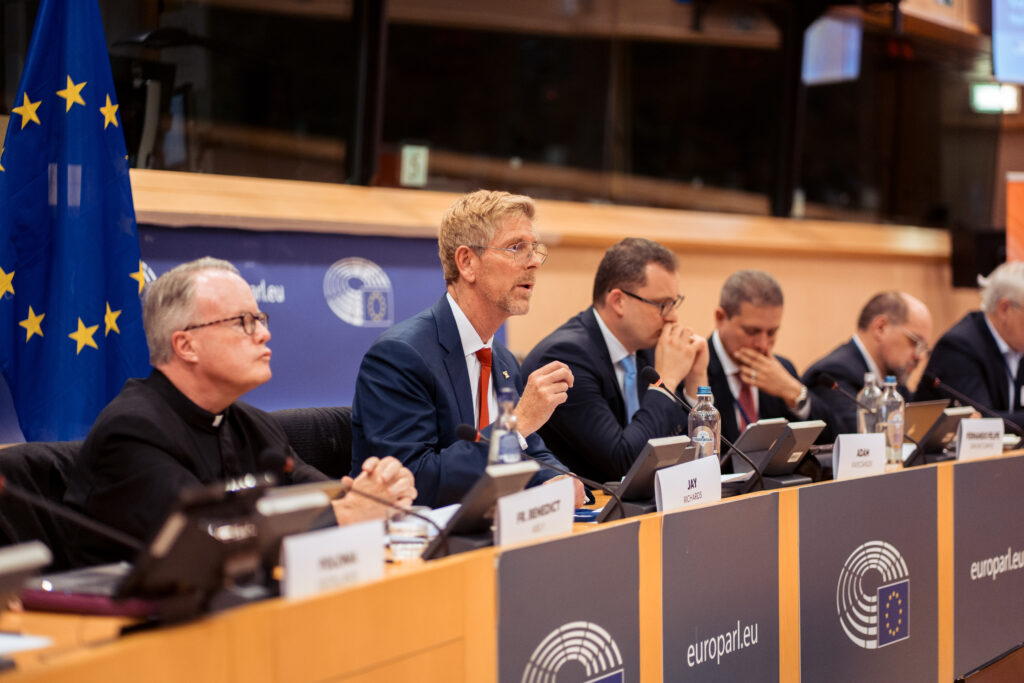North America just witnessed the hottest month in the history of record keeping (about 117 years). The month of July shattered every previous record, but was certainly not a freak occurrence. So far, the first 7 months of this year have been the warmest on average since records began over a century ago. Media outlets were abuzz with coverage of floods, droughts, fires, and storms, so naturally you’d think climate change would have played a massive role in their coverage.
You’d be wrong.
A great new study by Media Matters for America shows that our major media outlets – from cable news to print – almost completely ignored the role that man-made climate change played in our severe weather.
According to the study, only about 25% of print articles on the massive heat wave even mentioned climate change, while less than 9% of TV news stories about the weather mentioned climate change. Of the major cable outlets, MSNBC devoted the most time to discussing climate change, bringing up the issue in about 88% of their stories on the heat wave.
Not surprisingly, Fox News only mentioned climate change once, and the theory was quickly shot down by conservative hosts.
From the Media Matters report:
Of the six TV outlets included in our analysis, ABC mentioned climate change the least, in only 2% of coverage. Among the cable networks, CNN mentioned climate change the least, in less than 4% of coverage. MSNBC was the only television network to regularly incorporate climate change into primetime segments on extreme heat.
Fox Mentioned Climate Change Once, Only To Dismiss It. In six primetime segments on extreme heat, Fox News raised climate change once. The Five’s only liberal co-host Bob Beckel noted that record July heat is consistent with global warming, and was promptly dismissed by co-host Greg Gutfeld, who routinely denies that manmade global warming is occurring.
Overall, the major print outlets mentioned climate change in just over a quarter of articles on extreme heat. The New York Times led the pack, mentioning climate change in more than half of its coverage (54.5%), and the Washington Post mentioned it in 26% of articles on July heat. But the Associated Press, the Los Angeles Times, and USA Today mentioned it in less than 15% of coverage. The Wall Street Journal didn’t mention climate change at all, although the paper had significantly fewer stories on extreme heat.
Only 8% Of Coverage Pointed Out That Human Activities Are Driving Climate Change. Only 6% of television segments and 12% of print articles noted that climate change is fueled by human activities including the burning of fossil fuels, which emit greenhouse gases that are warming the planet. The Associated Press, USA Today, Fox News and the Wall Street Journal never made that connection.
Media Matters also took the time to show that these events were predictable, and that they were consistent with the effects we were expecting with anthropogenic climate change:
A 2012 Special Report by the Intergovernmental Panel on Climate Change (IPCC) deemed it “virtually certain” that heat extremes will become stronger and more frequent on a global scale in the 21st century, and “very likely” that heat waves will increase in “length, frequency, and/or intensity … over most land areas.” The report noted that “[p]rojected changes at subcontinental scales are less certain than is the case for the global scale” and that “[m]ean global warming does not necessarily imply warming in all regions and seasons.”
A study by the National Aeronautics and Space Administration’s James Hansen and other scientists found that land areas across the globe are “much more likely to experience an extreme summer heat wave than they were in the middle of the 20th century”.
But this isn’t the first time that the media has failed in their coverage of climate and environment-related events. In January of this year, Media Matters put together a report showing that media outlets were almost twice as likely to host Keystone XL proponents in their coverage of that issue. A report from the organization last year also showed that climate skeptics and anti-EPA carpers were more likely to receive airtime than those who acknowledge climate change science and support strong environmental safeguards.
The poor media coverage could be the main reason why American voters don’t believe that climate and environment issues are important in this year’s elections, with only 21% saying that combatting climate change is important to them. Canadians, on the other hand, have clearly learned more than Americans simply by observation, as a new poll shows that only 2% of Canadians believe that climate change is a hoax.
Subscribe to our newsletter
Stay up to date with DeSmog news and alerts






